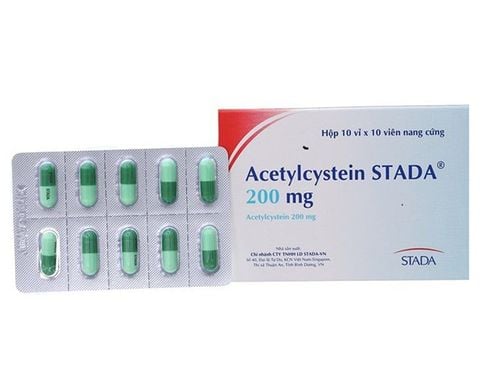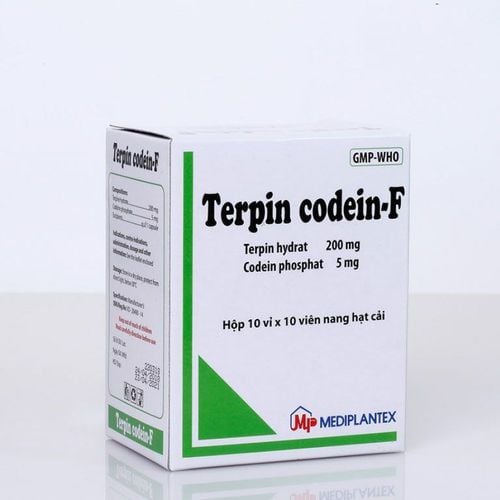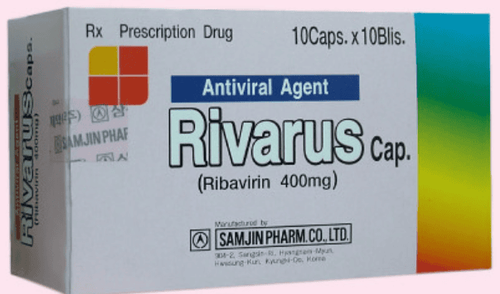This is an automatically translated article.
Children with bronchiolitis pneumonitis is a common acute respiratory disease in the changing seasons that can lead to severe complications, even respiratory failure. Common features of bronchiolitis in children under 2 years of age are rapid breathing, coughing and wheezing.1. What is superinfectious bronchiolitis?
Superinfectious bronchiolitis is a respiratory infection caused by a viral agent but with the existence of an emerging infection. The disease usually occurs mainly in children, especially those under 6 months of age. The main cause was determined to be respiratory syncytial virus (RSV), if the care and treatment process is not complete, it can create conditions for bacteria such as streptococcus and pneumococcus to survive in the nose and throat to attack. bronchioles make the superinfection more serious.
The risk subjects of the disease include:
Newborns with bronchiolitis superinfection often fall into cases of premature birth <36 weeks, birth weight is less than 2500g; Children < 3 months; Children with congenital heart disease and pulmonary hypertension; Children with chronic lung disease (pulmonary dysplasia); Immunocompromised children; Severely malnourished children.

Viêm tiểu phế quản bội nhiễm là bệnh lý nhiễm trùng đường hô hấp do tác nhân virus gây ra
2. How does a superinfection bronchiolitis present?
Children with superinfected bronchiolitis often start with symptoms of upper respiratory tract infection with the following symptoms:
Cough, runny nose, sore throat; Sometimes a low-grade fever; Rapid breathing; Wheezing, difficulty breathing; Chest is inflated, lung air is reduced, crackles are heard. In severe cases, children may have:
Severe wheezing; persistent vomiting; Rapid, rapid breathing (60 times/minute); Expression of fatigue, chest concave when breathing; pale skin; Difficulty drinking water. Children with recurrent or severe bronchiolitis can lead to unpredictable complications such as:
Respiratory syncytial virus (RSV), pneumonia (due to easy superinfection), atelectasis, otitis media ; These complications are common in children under 3 months of age, premature babies - low birth weight, severe malnutrition, cardiopulmonary disease or immunocompromised.
3. How to treat superinfected bronchiolitis?
The principle of treatment of bronchiolitis in young children is to provide enough water, electrolytes, nutrition and ensure oxygen. Some mild cases of children can be completely treated at home as follows:
Give the child a full meal, eat small meals, drink lots of water to thin the phlegm and soothe the cough; Antipyretic; Clean the nose and throat with physiological saline to disinfect; Can use cough medicine, expectorant as prescribed by the doctor; Pay attention to severe signs of children requiring hospitalization such as: High fever that does not respond to antipyretic drugs, refusal to breastfeed, vomiting, rapid breathing, chest indrawing, bulging nostrils, pale skin. In moderate or severe cases, the child needs to be treated at the hospital as follows:
Aspirate sputum to clear the child's airway; Give the child oxygen if indicated; Ensure nutrition: provide enough water, pour spoonful of breast milk; Give fluids if the baby cannot suckle; Use saline nebulizer or bronchodilator when the patient wheezes, has a lot of spasms; Use of antibiotics in pediatric patients with pulmonary superinfection.

Trẻ bị viêm tiểu phế quản bội nhiễm thường khởi đầu với triệu chứng của viêm long đường hô hấp trên
4. How to prevent bronchiolitis for children?
In order to prevent bronchiolitis for children, mothers need to pay attention from the time of pregnancy with periodic antenatal check-ups, develop adequate nutrition and reasonable labor to ensure full-term babies, enough weight. When the baby is born, the following measures can be taken:
Breastfeeding until 2 years old can provide many antibodies to help fight the disease; Children are fully vaccinated according to the expanded immunization program; Pay attention to children's nutrition, proper weaning; Dress the child warm enough in the changing season, which is easy to turn hot or cold suddenly; Keeping the living environment clean, avoiding exposure to dust, tobacco smoke. Caregivers who are in frequent contact need to wash their hands frequently; Avoid close contact with sick children and adults with respiratory infections; Regularly disinfect the nose and throat for children with 0.9% physiological saline. In case the child's cough does not go away for a long time or shows signs of respiratory infection, parents can take the child to Vinmec International General Hospital for examination, support and advice from the doctors. doctors and health professionals.
Please dial HOTLINE for more information or register for an appointment HERE. Download MyVinmec app to make appointments faster and to manage your bookings easily.













